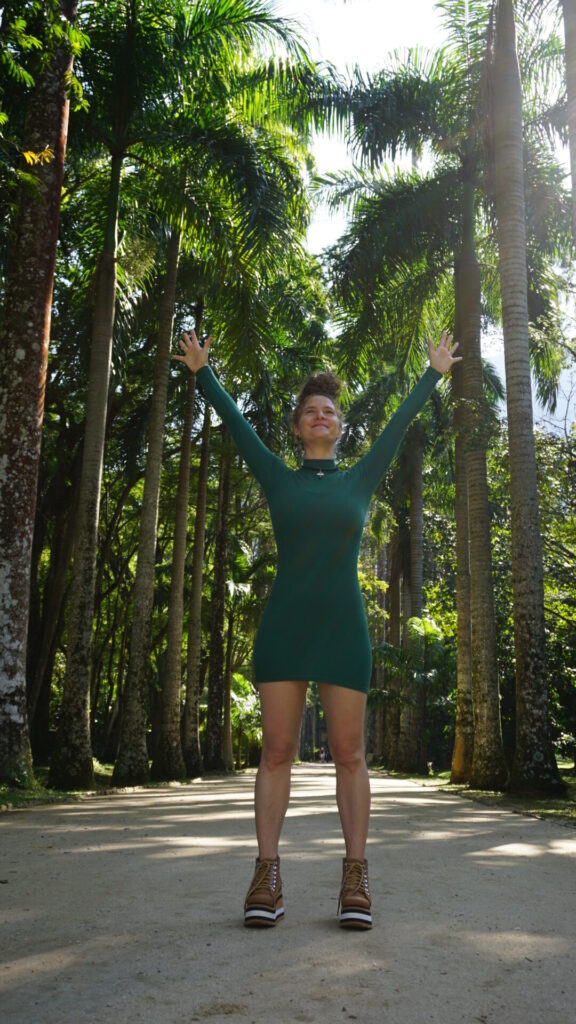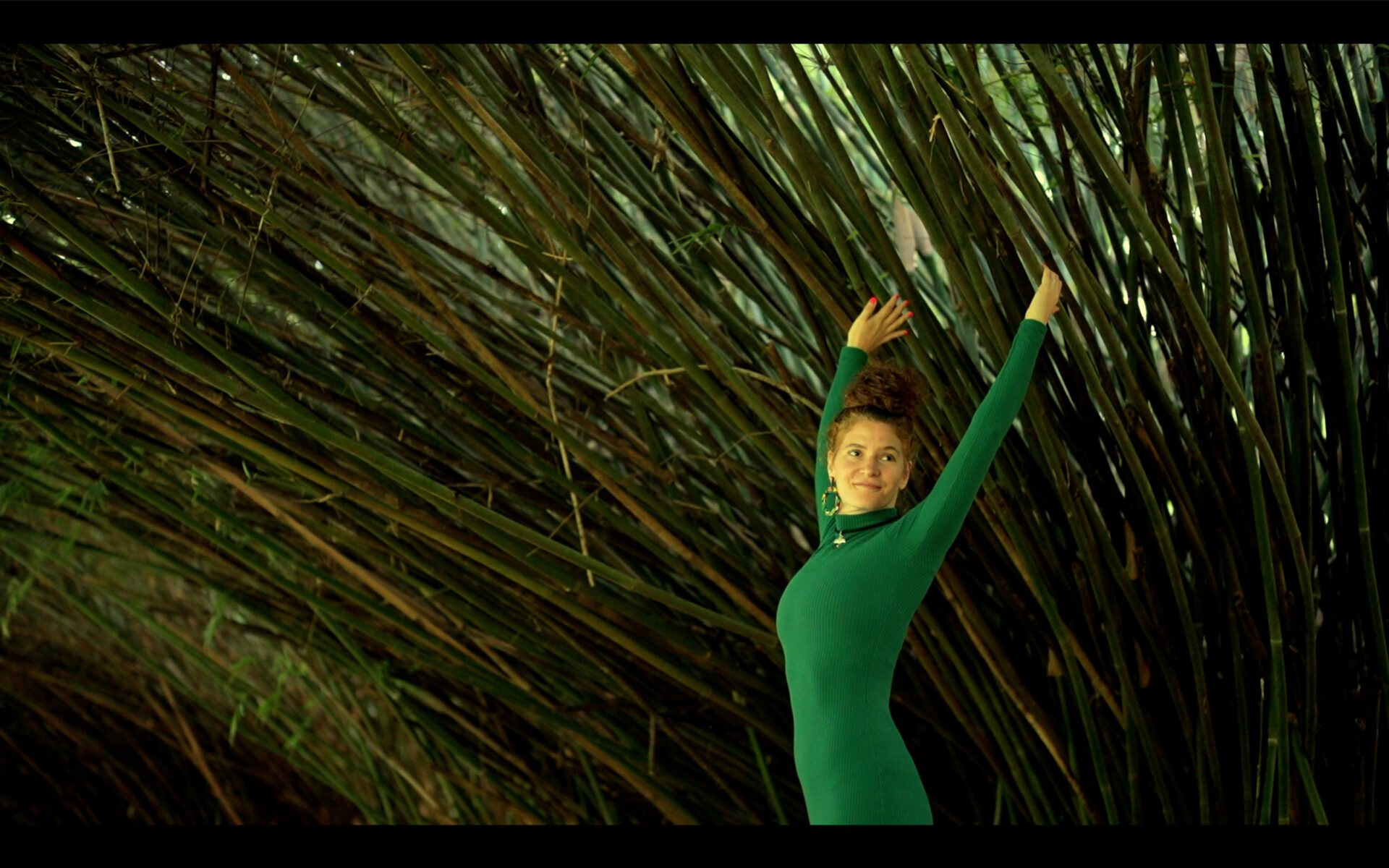Mariana Masetto is an Argentinean musician, singer, percussionist, writer, and educator who was born in Buenos Aires. La Bumbunita (2010), Soy libre (2012), Mientras viva yo iré cantando (2014), Ela e o mar (2016), Narciso, a 7″ vinyl (2017), Abro (2018), and Je ne pense qu’à toi (2020) are the eight albums and singles she has released.
Her most recent song, “Árbol,” is a dedication to the renowned Brazilian percussionist Naná Vasconcelos and was inspired by Peter Wohlleben’s “The Secret of the Trees” This song can be found on her ninth album. Numina. Check out the exclusive interview below:

1. Can you tell us a bit about where you come from and how it all got started?
MARIANA MASETTO: I come from Argentina, but currently I also have my Italian citizenship because my great-grandparents were all from the north of Italy. My family was rooted in the countryside, a land full of green between two rivers in Argentina close to Brazil. For this reason, and because of the Brazilian radios too, some words and some accents were mixed in our language, as well as the accent of the people from there. Actually, I was born in Buenos Aires, but a lot of the influence is from the fact that I was part of that region. The music came to me mixed as part of living in a cosmopolitan city and I was interested in mixing it up as part of my identity.
2. Did you have any formal training or are you self-taught?
MARIANA MASETTO: On a musical level, I have had different training with personalised teachers, then on a physical body level, I have had formal training in yoga and I also have a degree in tourism.
3. Who were your first and strongest musical influences and why the name ‘MARIANA MASETTO?
MARIANA MASETTO: My first influences were local groups that played reggae music and without a doubt Bob Marley himself was a big influence. The music that was played on the radio in the 90s was very diverse and influenced me a lot, but I can clearly say the Beatles and the Rolling Stones. Mariana Masetto is my real name.
4. What do you feel are the key elements in your music that should resonate with listeners, and how would you personally describe your sound?
MARIANA MASETTO: At the moment the elements are messages of the natural world and wellness. My sound goes to the place of peace and I build my sounds in this sense, I try to find the instruments that I have learned to play and I look for melodies that resonate in this sense.

5. Do you feel that your music is giving you back just as much fulfillment as the amount of work you are putting into it or are you expecting something more, or different in the future?
MARIANA MASETTO:
I love making music and it fills my soul, in terms of work I am in the direction of achieving a better position with music and my singing method, which has a book called “Our VOICE has BODY”, with it I have united several things at once, music, well-being and work, this is undoubtedly already giving me fruits, but it will be greater with time, I have no doubt I’ll reap the reward.
6. For most artists, originality is first preceded by a phase of learning and, often, emulating others. What was this like for you? How would you describe your own development as an artist and music maker, and the transition towards your own style, which is known as POP?
MARIANA MASETTO:
I started playing traditional music from my country and I tried to represent it in my own way, singing in a very simple fashion and with percussion instruments only. It was several years of work in which I had to find a way of expressing my own words. Nowadays, I feel that I have a stronger connection with myself to say who I am and how I feel about this world. I have included the cuatro as one of the main instruments with which I can usually find a lot of the melodies that are still floating in my songs.
7. What’s your view on the role and function of music as political, cultural, spiritual, and/or social vehicles – and do you try and affront any of these themes in your work, or are you purely interested in music as an expression of technical artistry, personal narrative, and entertainment?
MARIANA MASETTO:
I’ll start by saying that human beings are fundamentally political beings. Saying that, in this aspect, I intend to be and say what I feel without being a partisan, without supporting more than my naturalistic and humanistic search. I consider myself a humanist and a pacifist, something that is currently used in a partisan way or political side, of course I’m conscious about that, but I do not agree, I do not do, I will not do my music in this way. For me, Art and Music are essential to live, to live on this planet and to live in good social relations, and that’s what I want to share. This is my personal work, sharing what my inside dictates in this sense and gives me peace.
8. Could you describe your creative processes? How do usually start, and go about shaping ideas into a completed song? Do you usually start with a tune, a beat, or a narrative in your head? And do you collaborate with others in this process?
MARIANA MASETTO: My processes are generally diverse, but there is one that always happens and it has to do with observing nature and the sounds that I get from my bike rides, where my mind travels. I usually take my cuatro with me and when everything happens, I rehearse songs that already exist, new forms appear, new rhythms are the product of these journeys. I also base myself on a lot of dreams that I sometimes have, which I usually remember when I wake up. They are ephemeral but enough to prompt me to write a sentence or two and then carry on.
9. What has been the most difficult thing you’ve had to endure in your life or music career so far?
MARIANA MASETTO: I’ve had the experience of giving concerts in places where there’s also dinner, and depending on the context, I’ve felt a little crushed. I prefer to give concerts in places where people go just to listen to music. But today both activities are very common. I have adapted to this.
10. On the contrary, what would you consider a successful, proud or significant point in your life or music career so far?
MARIANA MASETTO: I have had many warm moments with music, many recognitions not only from people but also from my peers. I have been nominated for several awards and I continue working to show my work, which I am happy about.
11. With social media having a heavy impact on our lives and the music business in general, how do you handle criticism, haters, and/or naysayers in general? Is it something you pay attention to, or simply ignore?
MARIANA MASETTO: I read every opinion and I have taken myself as an example on YouTube to respond to all the messages of affection and recognition. Although I have gotten harsh criticism, I finally see that the person at least listened to me. It is true they did not like me but they listened to me, they saw me and that is a value for me. I accept criticism and I also learn from it. The world is diverse. Just as I don’t like it, everything is the other way round.
12. Creative work in a studio or home environment, or interaction with a live audience? Which of these two options excites you most, and why?
MARIANA MASETTO: I have learnt to produce mainly in my own studio, it is there where I travel very far with my soul. However, other very beautiful things happen to me live and they have to do with interaction and relationships, and that comes a little from the creative passion that connects me with the emotion of the relationship. I am fascinated by both situations. I’m still working on it so that one day they will merge even more and maybe I’ll be able to improvise songs live!
13. Do you think is it important for fans of your music to understand the real story and message driving each of your songs, or do you think everyone should be free to interpret your songs in their own personal way?
MARIANA MASETTO: At the moment my songs are composed in two languages, it has taken me a lot of work so that the messages have a fairly clear meaning. But it fascinates me and I understand that each one will lead to their own interpretation, even more since it is in two languages, it is a great game that I have started to develop after studying 4 different languages in the last years. I am fascinated by grammar, the shape of languages, phonetics, the way music is composed from the sounds of words, languages.
KEEP IN TOUCH:
FACEBOOK | INSTAGRAM | TWITTER | SPOTIFY | BANDCAMP | WEBSITE | YOUTUBE

